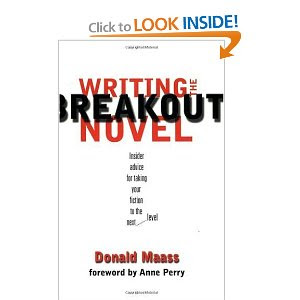
It was in the late 1990s when I had a humbling conversation with one of my writing heros, Frank Peretti. As an author publishing with the same publishing house (Crossway Books), Frank had been gracious with his time and critiqued a manuscript for me. I remember one of his comments like it was yesterday.
"You're breaking the rules, Harry."
I leaned forward. "What rules?"
He smiled. "Don't be afraid to read what the fiction teachers are saying."
When I questioned him further, he gave me an example of how I had broken a point-of-view rule in a scene I had written. Now realize, at that point in time, I had been blessed by having four novels published and had a contract in hand to write a fifth one (that I hadn't yet started). But until that time, I had only written by natural gifting and had never opened a book to instruct me on how this whole fiction world worked, and what the "rules" were (essentially what works and doesn't distract the reader). So I went to work and started reading book after book on how to do what I'd already been doing for years. The result? I had to fight being "gun-shy." As I read "the rules," I found myself worrying. Can I do this?
Of course, that was a silly worry, but when you write without knowing all the rules, you don't really have a basis for worrying if you are doing it correctly!
I think my early success slowed my maturation as a writer. Now, my writing is much tighter, and hopefully I've learned a few tips about conflict, suspense, pacing, and tension along the way. I've been able to polish my dialogue and edit more efficiently.
Now, people often ask me, "who are your favorite fiction teachers?"
I have a few I pay attention to. Here are my favorites: Donald Maass. He has a series of books including the one I pictured above about writing the breakout novel. Read all you can find from Sol Stein and James Scott Bell and even a guy named James Frey (although his books How to Write a Damn Good Novel I and IIprompted my then 12 year old to put masking tape over the spine of the book and substitute the word "Very" for "Damn.") OK, so I'm glad my son didn't like the title, but I loved the advice.
Who are your favorite teachers?
Harry

Hi, Harry, I think we were writing for Crossway about the same time. My favorite teacher is Dwight V. Swain. Nobody else teaches the structure of a novel as well as he does in TECHNIQUES OF A SELLING WRITER.
ReplyDeleteYou are absolutely right. Good instincts will take a writer maybe 80% of the way, but you need to know the rules to finish it off--especially for the polishing process.
I totally related to your blog, Harry, and I suspect I'm currently in that 'gun-shy' stage you mention! I hardly knew anything about 'the rules' when my first two novels were published. Now I'm slowly finding out more and more (I'm on my sixth novel) - and wondering more and more if I can 'do it', as you also say. As for teachers, I enjoy what I have of James Scott Bell and also found the book 'A Novel Idea' helpful, with its contributions from a variety of Christian authors. And I love the insights into writing that authors such as Madeleine L'Engle (eg 'Walking on Water', Anne Lamott ('Bird by Bird'), and even Stephen King give too.
ReplyDeleteJo-Anne, I really like Stephen King On Writing, too, even though I wouldn't describe myself as a Stephen King fan. Sol Stein's book is one of the best on my list. From Anne Lamott I learned to allow myself to write (Don't let Harry's kid see this!) a shitty first draft and to only tackle what fits in a two inch picture frame at a sitting. I find at any stage of writing, reading a book on writing fiction helps me to see the flaws in my current WIP.
ReplyDelete